Keynote Speakers
Professor Stepan V. Lomov, KU Leuven, Belgium
XCT imaging and image quantification of fibrous materials
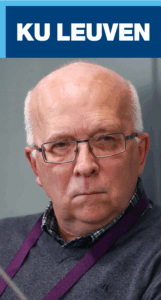
Stepan V. Lomov (1955) graduated from School N30 in Leningrad (1972), Phys.-Mech of Leningrad Polytechnic Institute (1978). PhD on terminal ballistics (1985), Dr Hab. on textile materials science (1995), St. Petersburg State University of Technology and Design. Since 1999 works in KU Leuven, Belgium, Department of Materials Engineering, coordinator of the Composite Materials Group in 2013 – 2020, Toray Professor in 2015 – 2020. Professor Emeritus since 2020. The talk is mainly based on the research conducted in the Department of Materials Engineering, KU Leuven, in collaboration with other groups worldwide.
Professor Luisa Silva, Centrale Nantes, France
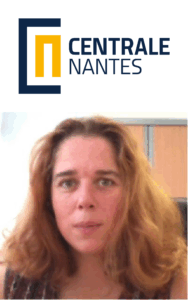
Luisa Silva’s research focus is on advanced numerical techniques used in High Performance Computing, including stable/stabilised immersed finite element methods, interface capturing through modified level-set or phase-field methods, anisotropic mesh adaptation, and developments in a massively parallel context.
Her expertise fields and software application developments are as follows:
– Finite elements and Eulerian approaches to solve thermomechanical multiphase problems.
– Parallel multiphase computational fluid dynamics of highly viscous to inviscid fluid flows and their phase changes.
– Direct 3D image-based numerical simulations (X-Ray tomography, point clouds, etc.) in several application fields.
– Development of software applications for urban environments, material forming processes and material structure development simulations.
Training Course Facilitators
Professor David Rousseau, Université d’Angers, France
A practical introduction to Deep learning applied to image processing
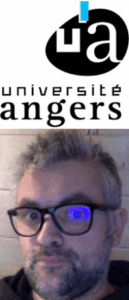
David Rousseau (Member, IEEE) was born in France, in 1973. He received the M.S. degree in physics and signal processing from the Institut de Recherche Coordination Acoustique et Musique, Paris, France, in 1996, and the Ph.D. degree in signal and image processing from the Université d’Angers, Angers, France, in 2004. From 2010 to 2017, he was a Full Professor of image processing applied to bioimaging with CREATIS, Université Lyon 1, Lyon, France. Since 2018, he has been heading the Bioimaging Research Group (ImHorPhen), Université d’Angers. His research interests include information sciences, machine learning-based computer vision, and their applications to life sciences.
Dr Félix Mercier, Université d’Angers, France
A practical introduction to Deep learning applied to image processing
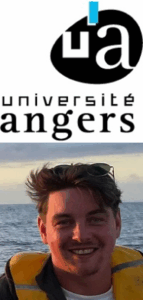
Dr Chris Richardson, University of Cambridge, UK
FEniCS: a popular Open Source software package for Finite Element Analysis
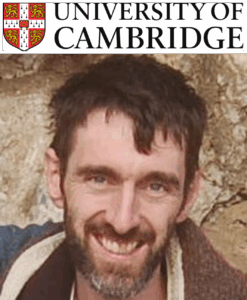
Chris has been collaborating on research into modelling of continuum problems using the Finite Element Method (FEM) and development of the popular FEniCS software platform. Recent work is in partnership with other institutions through the UKRI ExCALIBUR Programme, and the Coupling, Synthesis and Performance Project and High Priority Use Case SysGenX. He is also working on benchmarking for High Performance Computing, GPU programming, and working with Rolls-Royce future systems team for engine design.
Additional Speakers
- Jérôme Adrien, CNRS, INSA Lyon, Université Claude Bernard Lyon 1
- Miraslau Barabash, University College London
- Michele Darrow, Rosalind Franklin Institute
- Simon Daubner, Imperial College London
- Lloyd Fletcher, UK Atomic Energy Authority
- Grammatiki Lioliou, University College London
- Nina Lassalle-Astis, Cetim
- Andrea Mazzolani, University College London
- Vincent Maes, University Of Bristol
- Hannah Robarts, UKRI-STFC
- Renee Taylor, University of Sheffield
- Léonard Turpin, Université De Bordeaux
- Franck Vidal, UKRI-STFC / Bangor University
- Nicola Wadeson, The University of Manchester
Poster Presenters
- Jean-Claude Bikaku, University of Leeds
- Ethan Edmunds, The University Of Sheffield
- Harriet Jones, UKRI-STFC
- Lizzie Mushangwe, University of Oxford
- Zeyan Wang, University College London
Keynote Speakers
Dr Samuel J Cooper, Dyson School of Design Engineering, Imperial College London
Machine learning for the characterisation and design of battery electrodes

Dr Sam Cooper is an Associate Professor in energy science and materials design in the Dyson School of Design Engineering at Imperial College London. His PhD was on the characterisation and optimisation of battery and fuel cell electrodes through 3D imaging, simulation and machine learning. Sam is the leader of the TLDR (Tools for Learning, Design and Research) group who have a particular interest in the application of generative adversarial networks to design tasks.
Professor Christian Gasser, KTH Royal Institute of Technology, Stockholm
Integrating 2D/3D images with numerical simulations for mechanical deformation analysis

Christian Gasser is Professor of Biomechanics at KTH Royal Institute of Technology, Stockholm. He holds a Master of Mechanical Engineering (1997) and a PhD in Civil Engineering (2001), both from Graz University of Technology, Austria. The development and application of advanced numerical techniques to solve realistic (bio)engineering and clinical problems, is Gasser’s main research objective. Constitutive models for anisotropic finite strain materials have been implemented in all major Finite Element simulation packages, such as ANSYS, ABAQUS, COMSOL, etc, and Gasser’s translational biomechanics research led to A4clinicsRE, commercial biomechanical-based simulation software for clinical decision making. In 2022 he has been listed as KTH’s most influential researcher in Biomedical Engineering, and his work led so far to more than 16k Google Scholar citations. He received a Humboldt Research Award from Germany, and Gasser is designated 2024 Odqvist lecturer, a distinction awarded by the Swedish national mechanics committee. He is Associate Editor of Int. J. for Num. Meth. in Biomed. Engrg, in the editorial board of Mechanics of Soft Materials and a EMMCC member, principal founder of ARTEC Diagnosis AB and VASCOPS GmbH, and serves a legal expert for skiing accident reconstruction at Oberlandesgericht, Graz, Austria.
Special Invited Speaker
Dr Tim J. Barden, Rolls-Royce plc
Sensors and sensing – Getting to the start line for imaged-based simulation
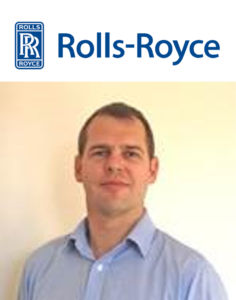 Tim Barden moved to Rolls-Royce having carried out a post-doctorial position at Bath University researching thermal methods for non-destructive evaluation. His role at Rolls-Royce primarily involves the development and introduction of new NDE technologies and is the current Industrial Chair of the Research Centre in Non-Destructive Evaluation.
Tim Barden moved to Rolls-Royce having carried out a post-doctorial position at Bath University researching thermal methods for non-destructive evaluation. His role at Rolls-Royce primarily involves the development and introduction of new NDE technologies and is the current Industrial Chair of the Research Centre in Non-Destructive Evaluation.
Image based simulation has potential benefits to many industries. However, as with all simulation, understanding the inputs is essential and for image based simulation they are varied and each application will have its own limitations. Non-destructive evaluation (NDE) utilises a wide scope of technologies, any physical phenomena that gives information about material integrity could be used as a NDE technique. The same can be said for obtaining data for image based simulation. Modalities include the electromagnetic spectrum, such as optical and x-rays, as well as vibrational waves such as ultrasonics. The variation is further increased by the numerous techniques to stimulate a test object, monitor the response and interpret the output.
The presentation will concentrate on the more common NDE techniques used for obtaining image data including radiography, x-ray computed tomography, ultrasonic and visual. Additionally, general topics will be considered including understanding the quality of the data and reducing artefacts.
Additional Speakers
- Ander Biguri, University Of Cambridge
- Christian Breite, KU Leuven
- Alex Cornell-Thorne, Swansea University
- Koussay Daadouch, Ruhr University Bochum
- Dongze He, The University of Manchester
- Umeir Khan, University Of Bristol
- Rhydian Lewis, Swansea University
- Grammatiki Lioliou, University College London
- Harry Lipscomb & Marti Puig, University of Manchester
- Iwan Mitchell, Bangor University
- Subrata Mondal, University of Bath
- Tessa Nogatz, RPTU Kaiserslautern-Landau
- Fatima Zahra Oujebbour, CNESTEN
- Chris Packer, The University of Edinburgh
- Sylwin Pawlowski, University of Lisbon
- Connie Qian, The University of Warwick
- Dirk Schut, Centrum Wiskunde & Informatica (CWI)
- Elena Syerko, Nantes Université, École Centrale de Nantes
- Benjamin Thorpe, University of York
- Léonard Turpin, Diamond Light Source
- Fatih Uzun, The University Of Oxford
- Franck Vidal, Bangor University
- Walter Villanueva, Bangor University
- Moritz Weiss, Diondo / University of Wuppertal
- Liang Yang, Cranfield University
- Miroslav Yosifov, University Of Applied Sciences Upper Austria
Details on speakers will be announced here nearer to the time of the event.
For details on speakers from previous events please see the past events page.